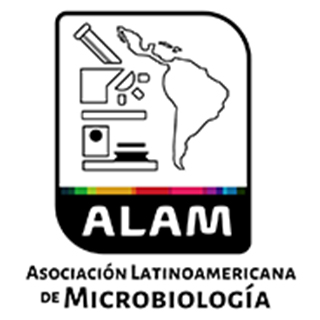Submission of Abstracts
Deadline: August 06, 2021
Types of presentation for abstracts
- Oral
Each registered to the Congress may submit up to 2 (two) abstracts.
Abstracts should include: Title, Authors, Affiliation and Summary (central body)
- Title: You must enter the title of your summary, whose maximum length should be 35 words.
- Abstract: You must enter the central body of the abstract, whose maximum length should be 500 words. The abstract should include a brief introduction, description of the methods used, the results obtained and at least one conclusion. It should not include Tables, Graphs or Figures. Funding sources should NOT be included in the central body of the summary.
RECOMMENDATION: To facilitate your work, it is recommended to write the abstract in Word, etc., and then simply copy and paste it into the platform.
Finally, keep in mind that once submitted, you will no longer be able to modify your abstract.
Research areas for abstracts
- Microbiology
- Clinical Biochemistry
- General Biochemistry and Laboratory Sciences
Microbiology
- Ecology, Epidemiology and Microbial Evolution.
- Physiology and Microbial Metabolism or Cellular and Molecular Biology microbial
- Guest Interaction – Pathogen.
- Environmental microbiology and microbial interaction.
- Resistance to antimicrobial agents.
- Development of new drugs.
- Clinical microbiology, public health and innovation.
- Neglected infectious diseases.
- Biosecurity and Biocustodia.
- One Health.
- Precision medicine.
- Industrial microbiology, Biotechnology and Bioindustries.
- Microbiology in agriculture.
- Food microbiology.
- Veterinary Microbiology.
- Pharmaceutical Microbiology.
- Quality control in Microbiology
Clinical Biochemistry
- Impact of the Pre Analytical Phase in the clinical diagnosis.
- Standardization of laboratory tests of different degrees of complexity.
- Risk Management applied to Clinical Laboratories. Design of quality strategies based on risk.
- Certification of professional skills.
- Molecular techniques, advances in diagnosis.
- Quality Control in Attention Point Tests.
- Methodological trends in clinical laboratory diagnosis in special tests.
- Advances in the diagnosis of autoimmune diseases.
- Importance of the Clinical Laboratory in epidemic control.
- Update in Endocrinology.
- Update in Hematology.
- Update in reproductive gynecology.
- Network Systems Management Model in blood services.
- Update on tumor markers. State of the art
- New trends and technological advances in the coagulation laboratory.
- Public health service networks.
- Sexually transmitted diseases.
- Diagnostic trends and contribution of molecular biology.
- The value of the Institutions.
- Institutional ethics and its institutional gender entity.
- Management in nonprofit professional organizations.
- Strategic alliances for negotiation
General Biochemistry and Laboratory Sciences
- Update in Toxicology.
- Forensic Laboratory. State of the art
- Update of the State of Higher Education.
- Update in Laboratory of high research and specific projects.
